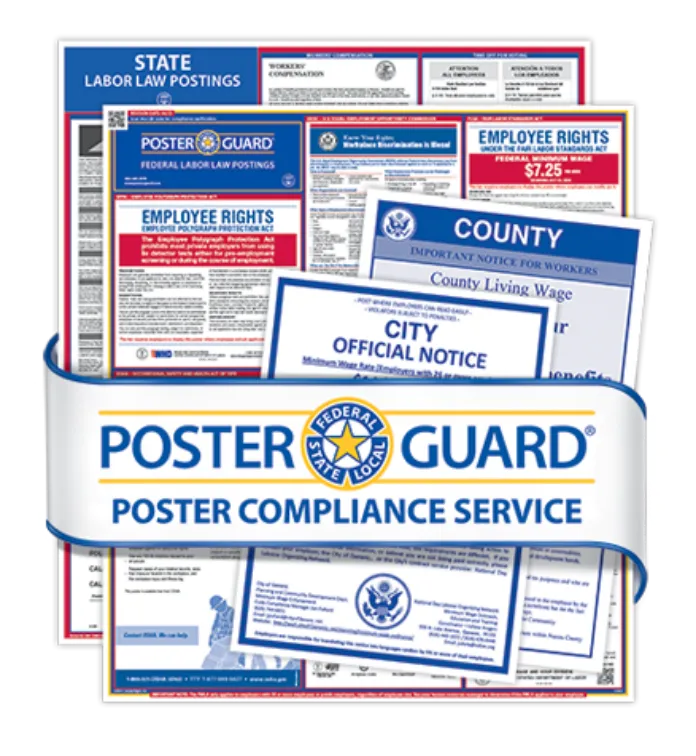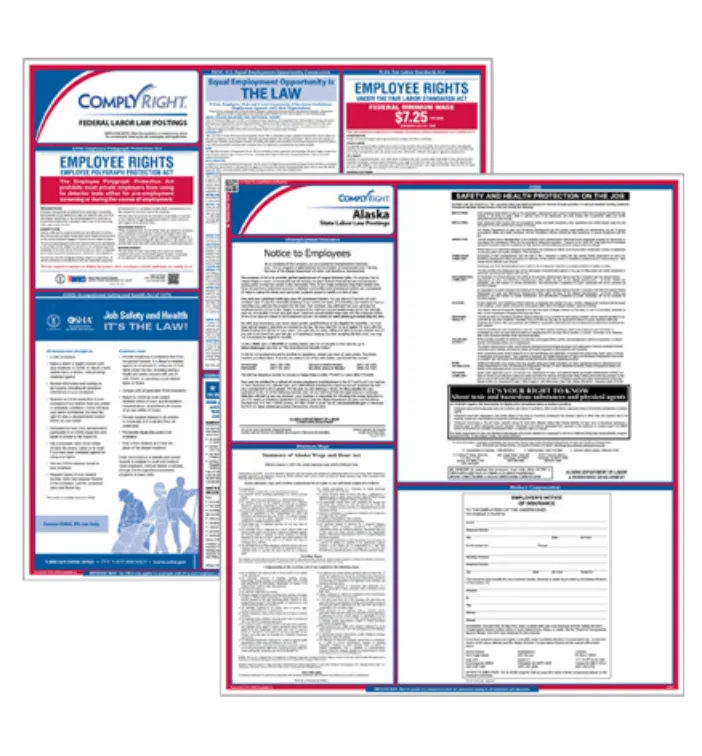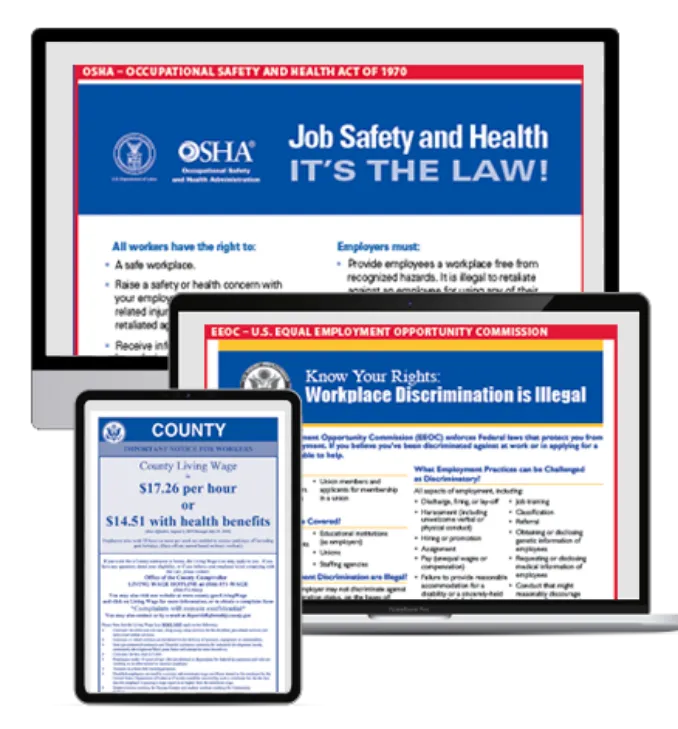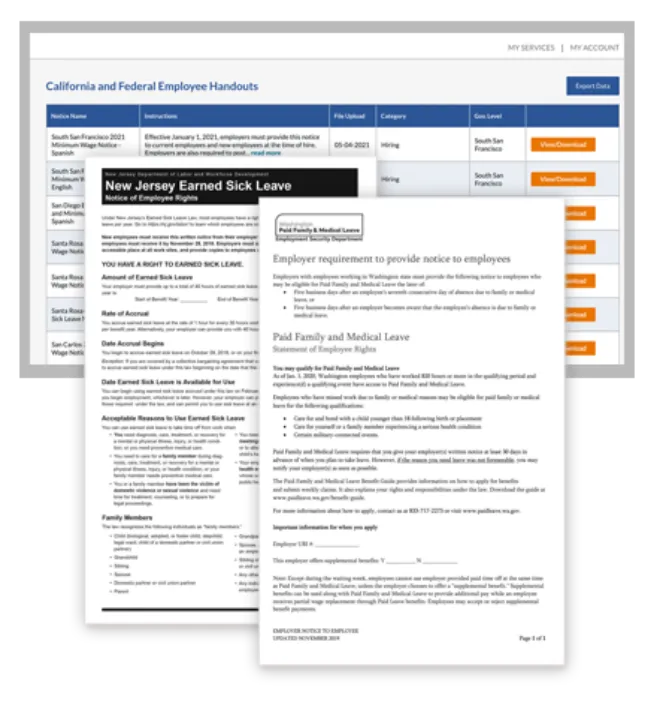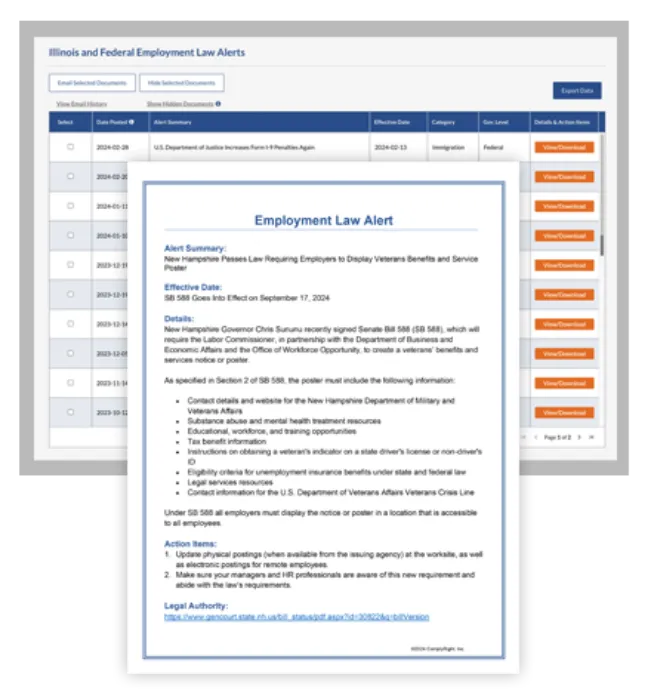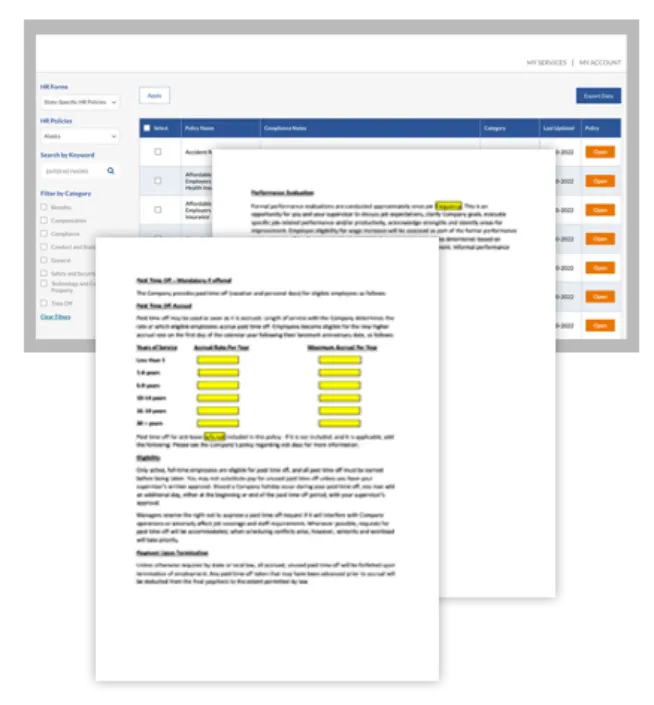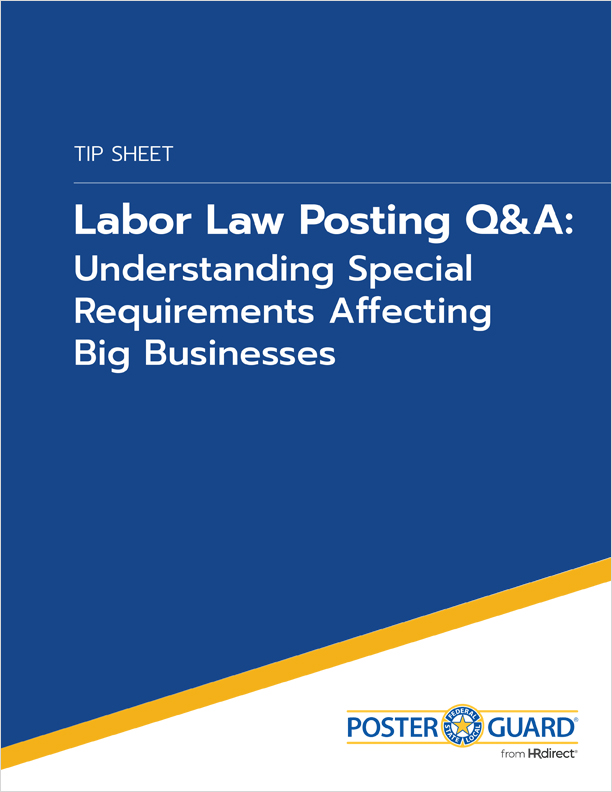Now more than ever, we’re seeing a significant rise in state- and local-level paid sick leave laws that protect workers in times of need. In the absence of federal-level legislation extending paid time off for various family and medical reasons, a handful of state, cities and counties are stepping in with their own paid leave provisions.
These emerging laws not only affect employers and how they manage their workforce, but they also come with specific posting requirements to inform employees of their rights. Let’s look at the locations where this growing employment law trend is making the most impact.
States, Counties and Cities with Mandatory Paid Sick Leave Laws
As of April 2020, 12 states and Washington, D.C. have enacted their own paid sick leave laws:
- Arizona
- California
- Connecticut
- Maryland
- Massachusetts
- Michigan
- Nevada
- New Jersey
- Oregon
- Rhode Island
- Vermont
- Washington
Connecticut was the first state to require private employers to provide paid sick leave to their employees, with legislation enacted in 2011.
In addition, more than 18 cities and counties now have paid sick leave requirements, as follows:
- CA: Berkeley, Emeryville, Los Angeles, Oakland, San Diego, San Francisco, Santa Monica
- IL: Chicago, Cook County
- MD: Montgomery County
- MN: Duluth, Minneapolis, St. Paul
- NY: New York City, Westchester County
- PA: Philadelphia, Pittsburgh
- WA: Seattle, Tacoma
These paid sick leave laws typically allow employees to earn paid sick days based on days or hours of work completed, and the paid time off can be used to recover from illnesses, seek medical care or, in some cases, attend to a sick family member. Some of these laws also include paid “safe” days that provide earned leave for survivors of domestic violence, sexual assault or stalking to seek services related to these incidents.
New Jersey law preempted 13 previously enacted local sick time laws, meaning all applicable employers must now follow the state law.
Federal Legislation and Emergency Coverage for COVID-19
Important distinctions in any discussion of sick leave laws is whether the time off is paid, and who the legislation targets. On a federal level, eligible employees can take up to 12 weeks of leave for a “serious health condition” under the Family and Medical Leave Act (FMLA), but this time is unpaid. And there’s the more recent Paid Sick Leave executive order signed by former President Obama, but that only applies to certain federal contractors.
The COVID-19 outbreak in the United States, however, changed this dynamic. In response to a severe health and safety crisis, the Families First Coronavirus Response Act (FFCRA) was passed to provide 80 hours of paid leave for eligible full-time employees who are:
- Under a federal, state or local quarantine or isolation order related to COVID-19 – or are caring for an individual who is under a similar order
- Advised by a healthcare provider to self-quarantine related to COVID-19 – or is caring for an individual who has similarly been instructed
- Experiencing COVID-19 symptoms and is seeking a medical diagnosis
- Caring for a child whose school or place of care is closed (or childcare provider is unavailable) for reasons related to COVID-19
- Experiencing any other similar condition specified by the Secretary of Health and Human Services
The FFCRA affects private employers with fewer than 500 employees and most public employers, and is effective until December 31, 2020. It also amends the FMLA to allow emergency paid family leave to eligible employees who are unable to work to care for a child whose school or place of care is closed during the national emergency.
Satisfy Mandatory Posting and Employee Notification Requirements
In almost every case, the states, counties and cities listed in this article have mandatory posting requirements to inform employees of their rights under paid sick leave laws. A few require mandatory employee handouts, too, as a completely separate compliance obligation.
Complete and guaranteed federal, state and local posting coverage is available with Poster Guard® Compliance Protection. Plus, you can obtain the new Families First Coronavirus Response Act (FFCRA) Poster — a stand-alone poster for immediate compliance until the law expires at the end of 2020. Additionally, the Mandatory Employee Handout Service gives you immediate access to any notifications triggered by employee leave events.

